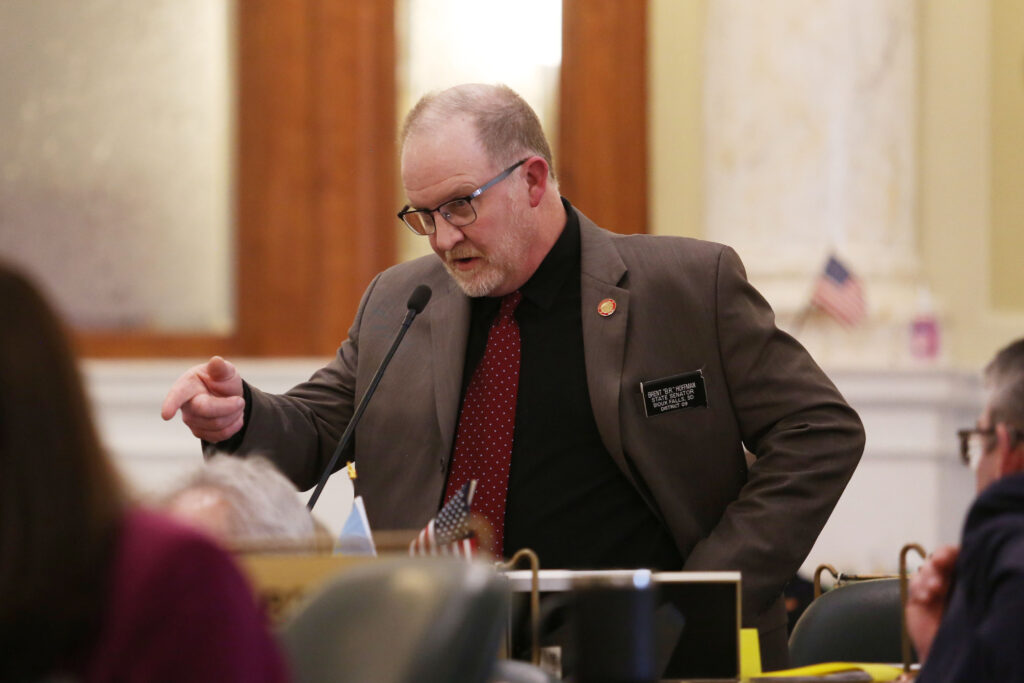
Makenzie Huber/South Dakota Searchlight – A bill mandating minimum safety standards in public schools — without requiring armed guards — was unanimously approved Tuesday by the Senate Education Committee at the Capitol in Pierre.
The bill is a modified revival of an earlier school safety bill that failed in committee due to concerns about staffing, costs and local control. That bill included a requirement for schools to have either school resource officers supplied by local law enforcement agencies or sentinels, who are trained and armed employees without police credentials.
The “school safety 2.0” bill, as described by prime sponsor Sen. Brent Hoffman, R-Hartford, was “fine tuned” to focus on standardization of public school locked door policies and increasing awareness of the state’s anonymous reporting hotline.
The bill would require that a school employee must be present to watch and control an unlocked main entrance of a school when students are present to prevent school shootings or other bad actors. When the doors are locked during regular school hours with children present, the main entrances would have to be monitored either by video or in person.
The bill would also require that school districts publicize the state’s school safety tip line on their websites and “in a conspicuous place” in each school building.
Although education lobbyists were widely opposed to the bill — citing insurance concerns and calling the bill an unnecessary, unfunded mandate — it was not enough to dissuade lawmakers on the committee.
 Sen. Steve Kolbeck, R-Brandon, listens to testimony during a Senate Education Committee meeting on Jan. 16, 2024. (Makenzie Huber/South Dakota Searchlight)
Sen. Steve Kolbeck, R-Brandon, listens to testimony during a Senate Education Committee meeting on Jan. 16, 2024. (Makenzie Huber/South Dakota Searchlight)Sen. Steve Kolbeck, R-Brandon, compared the standardization bill to fire protection and automated external defibrillator accessibility in schools.
“We haven’t lost a child in a school fire since the 1950s. Why? Because it’s standardized,” Kolbeck said. “… There may be an example of a one room school house where this might be a struggle, but I think it’s worth it to figure it out.”
Hoffman said that although such a law could “potentially increase perception of liability on schools,” he’s not aware of a school being found liable for school shootings.
“You’re gonna get sued if you don’t lock the door and you’re gonna get sued if you do lock the door,” Kolbeck said before voting to move the bill to the Senate floor.
The bill only affects public schools, Hoffman clarified, because a statute to standardize safety policy for private and tribal schools could be too “complicated for legal reasons.” He expects more amendments will be discussed on the Senate floor.
